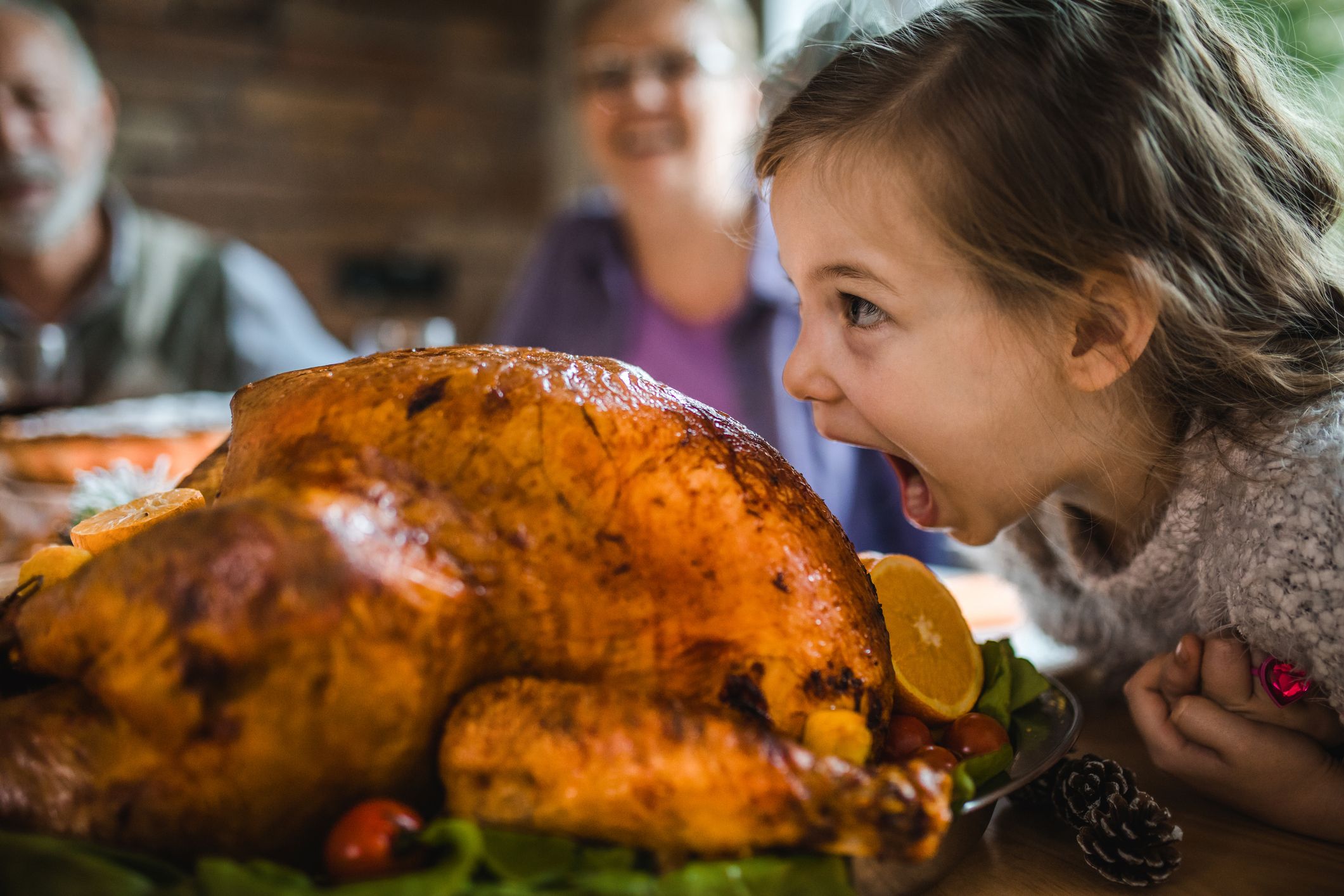
Well, another Thanksgiving has come and gone here in the U.S.! Many of us spent the holiday with relations, having huge feasts, yelling at the game on T.V., and starting our Christmas shopping. Not me — I pent five days all to myself — and it was WONDERFUL! Don’t get me wrong — like you I enjoy a little travel, time with friends and family, and even being involved in the cooking (for obvious reasons) — however I also immensely value my personal time. For what might not be so obvious … I’m an introvert — I’m glad to spend five days straight doing my own thing and not seeing another soul! Audiobook Narrator
In advance of the holiday weekend I wrote myself a To-Do List. For the most part it was a collection of things that are different from my regular grindstone tasks — and frankly … they were more interesting, too. As my five-days-alone approached I got excited to dive in on my list. Oh yeah, I’d planned to make progress on all this stuff, get some time on neglected projects. So when the first day hit …. yeah, I didn’t really do anything. The second day went pretty much the same way. Then I remembered …. every once in a while, take a break! After two days I forgave myself and then rolled up my sleeves. Now at the end of my five days most of the list is not marked off, but I’m pleased with things I have done. Audiobook Narrator
But how does this relate to audiobook narration?
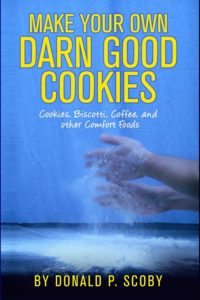
One of the scribbled lines on my To-Do List was to audio record my debut recipe book “Make Your Own Darn Good Cookies”. Why would I do this? Well, for one … because I can … and for two, because I’m once again exploring the idea of becoming a professional Audiobook Narrator.
In “Make Your Own Darn Good Cookies” I tell the story of how my recipe book came to be — which includes dealing with a hard drive crash 1/2 way through*. Around that time I had a laugh with my editor — obviously I can read, I have a small collection of recording gear from my other super hero persona as a musician, and I’ve been told I have a nice voice — I could make an audiobook version of my recipe book!!! The laugh was that I could completely produce this myself at little cost, but who would want to listen to a recipe book?!? … And then I found some recipe books that ARE also available in audiobook form. The laughter stopped and the research began.
* NOTE — Back-up your hard drive.
Life Of The Audiobook Narrator
 Long-story-short … audiobook narrators are work-from-home contractors who get paid to read books aloud and prepare their finished recordings for the client. Tons of information about the industry is available online. If you dig down you can find the ‘realities of the industry‘ as well. While many articles sing the praises of the work and tell you what’s involved, only some of them break down the hard numbers and tell you what you didn’t know or maybe don’t want to hear. Me … I DO want to get that part of the picture. Twice before I’ve toyed with the idea, lately I’ve been taking a hard look at it again.
Long-story-short … audiobook narrators are work-from-home contractors who get paid to read books aloud and prepare their finished recordings for the client. Tons of information about the industry is available online. If you dig down you can find the ‘realities of the industry‘ as well. While many articles sing the praises of the work and tell you what’s involved, only some of them break down the hard numbers and tell you what you didn’t know or maybe don’t want to hear. Me … I DO want to get that part of the picture. Twice before I’ve toyed with the idea, lately I’ve been taking a hard look at it again.
Getting Ready
I’ve read additional articles and listened to numerous audiobook narrators objectively to understand what they do in their performances. To ‘cut my teeth’ I’ve decided to finally record Make Your Own Darn Good Cookies to see what I think — and to finally produce the audiobook version so I can release it with the upcoming new cover-art for the book and e-book.
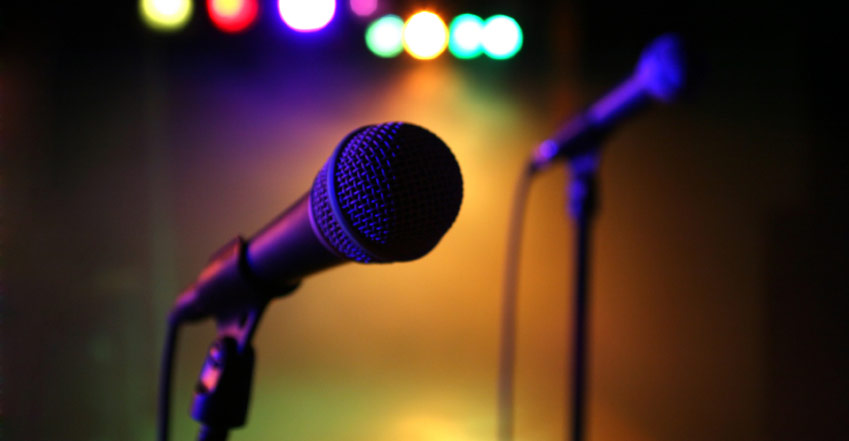 Last night I practiced reading some of my recipe book aloud. Something about it felt better than when I last gave it a go (which, unrelated, I did during a power outage because I had little else to do). This time it felt more natural and confident …. no idea why. All I can think of is that I’ve had nearly a year of listening to additional audiobooks — when I listen it’s not only for entertainment and interest, part of me also tries to observe what the author is doing. Perhaps part of it too is that I’ve listened to about 1/2 a dozen topical books since spring 2021 — straight reading which the narrators need to bring out as opposed to working with a diversity of characters in fiction. A recipe book requires straight reading, which a good narrator will give intonation to keep it interesting to the reader.
Last night I practiced reading some of my recipe book aloud. Something about it felt better than when I last gave it a go (which, unrelated, I did during a power outage because I had little else to do). This time it felt more natural and confident …. no idea why. All I can think of is that I’ve had nearly a year of listening to additional audiobooks — when I listen it’s not only for entertainment and interest, part of me also tries to observe what the author is doing. Perhaps part of it too is that I’ve listened to about 1/2 a dozen topical books since spring 2021 — straight reading which the narrators need to bring out as opposed to working with a diversity of characters in fiction. A recipe book requires straight reading, which a good narrator will give intonation to keep it interesting to the reader.
I just finished about 30 minutes of recording work and I’m about to listen to the playback. I feel good about this. Let’s see how it goes …
But What About Recipe Books?!?
Yes, I had a production baking business. Yes, I switched to writing recipe books. Yes, I am also a professional musician. And, yes, I like to eat and have bills to pay. I have been working to get work since closing the production baking — clearly with little luck. Frankly folks, writing and selling books alone is not enough — BiscottiDon needs a day-job. My passion for baking, cooking, and writing (and playing bagpipes) does not change with working a day-job. In fact, I have 3 new recipe books nearing completion — publishing around spring 2022. I’ve been interested in getting a work-from-home position, and audiobook narration looks like it could be a good fit!
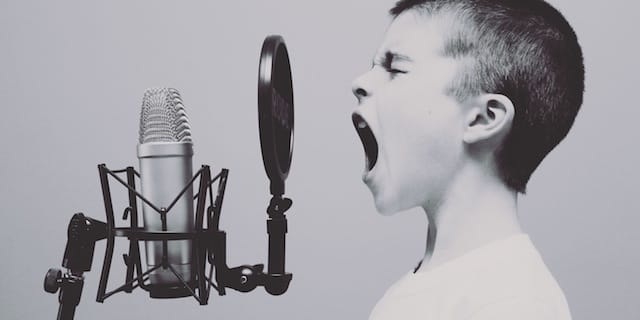
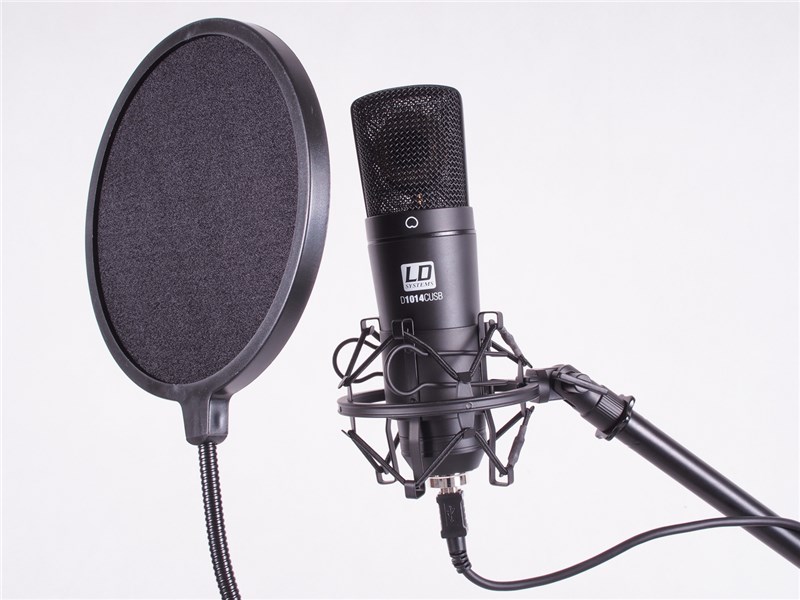 Last week on Twitter one of the authors I’m connected with posed a question about audiobooks — a question I run into from time to time.
Last week on Twitter one of the authors I’m connected with posed a question about audiobooks — a question I run into from time to time. 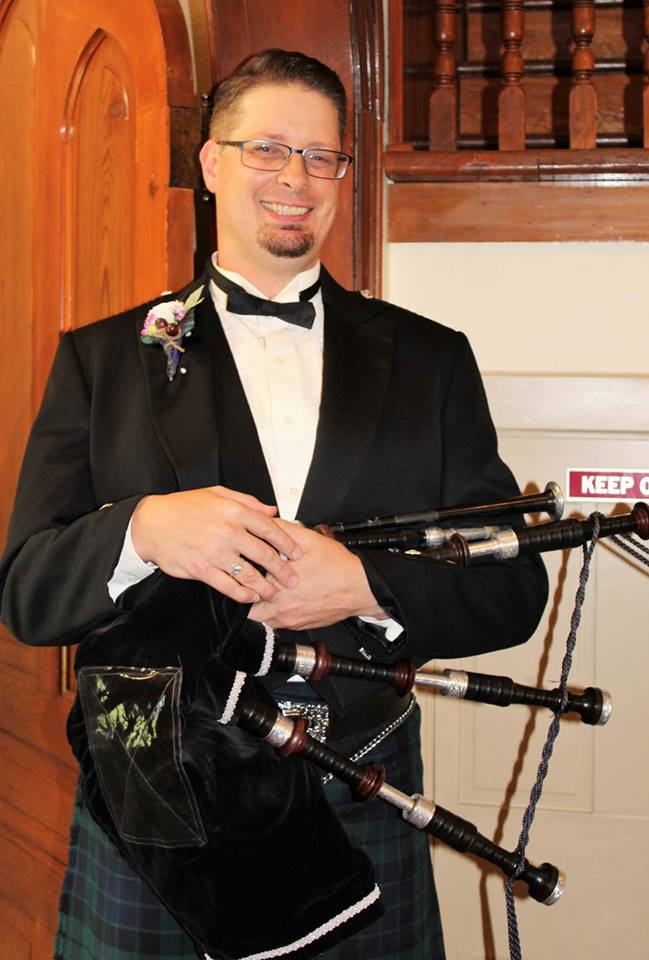
 One option is to record in a studio. A studio like what musicians use to record albums are not only more than what you need, they are also really expensive! The last I checked — which was 1-2 decades ago — if you could find something around $100/hr that was on the inexpensive end. This is what motivated me to get my own gear and learn how to use it for recording
One option is to record in a studio. A studio like what musicians use to record albums are not only more than what you need, they are also really expensive! The last I checked — which was 1-2 decades ago — if you could find something around $100/hr that was on the inexpensive end. This is what motivated me to get my own gear and learn how to use it for recording 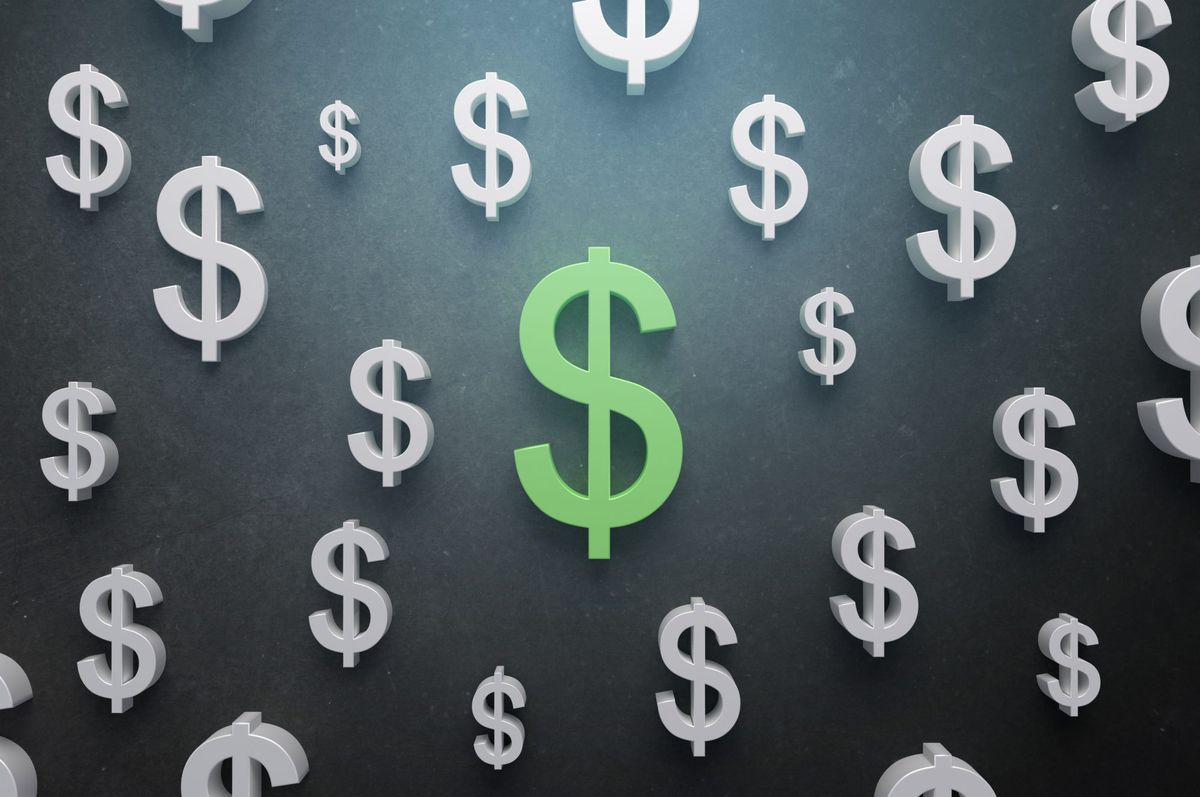 Calculate this…
Calculate this…
 I wrote earlier that Mr. Ratliff asked about the risk involved with an author recording their own audiobook. I’m frankly not clear what he means with regard to risk, but I have a few ideas …
I wrote earlier that Mr. Ratliff asked about the risk involved with an author recording their own audiobook. I’m frankly not clear what he means with regard to risk, but I have a few ideas … No one can answer that question but you. It’s not impossible but for most authors it’s more work than they care to bite off. This should help give you things to consider and know about.
No one can answer that question but you. It’s not impossible but for most authors it’s more work than they care to bite off. This should help give you things to consider and know about.